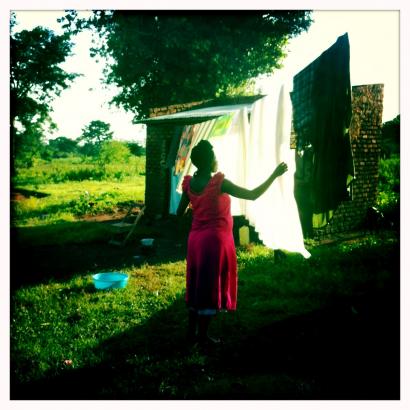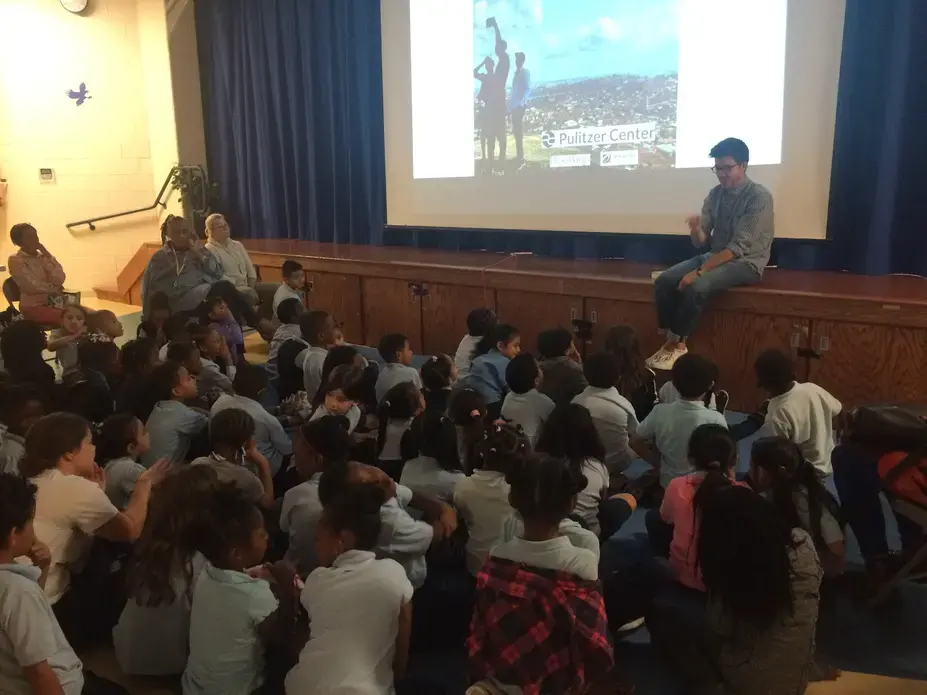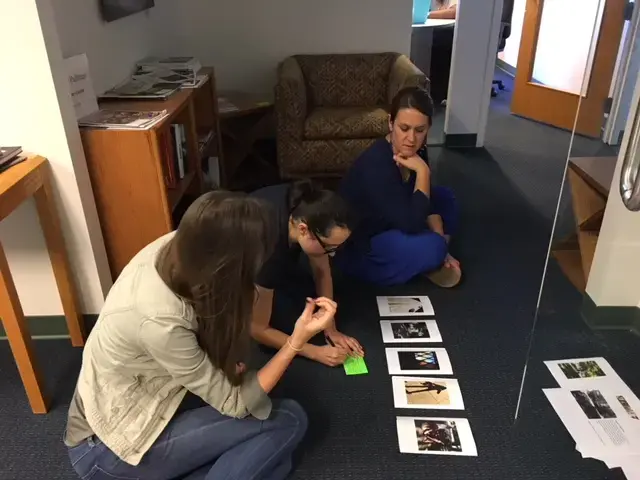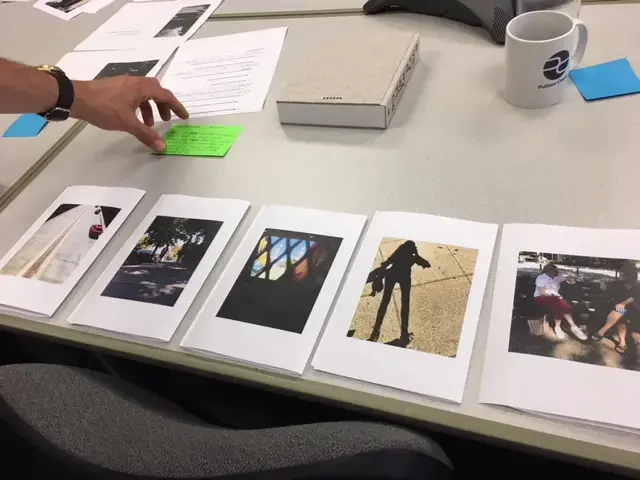“There is an element to this of feeling like we’ve come full circle,” Peter DiCampo told the crowd that gathered at the Pulitzer Center to hear about Everyday Africa from him and cofounder Austin Merrill on September 25. The Instagram feed that has exploded into a cross-continental phenomenon with over 369,000 followers worldwide and dozens of offshoots was first imagined while the journalists were on a reporting grant funded by a Pulitzer Center grant. This September, DiCampo and Merrill returned to DC to showcase their newly released book and to kick off a major education project inspired by their work.
School Visits
During their three-day tour, DiCampo and Merrill visited twenty-three different classes in nineteen DC Public Schools, reaching over 600 students in all eight wards of the city. They presented Everyday Africa to a diverse set of students, from a high school photography class to a middle school assembly to a group of first graders. In each class, the journalists challenged students to think critically about how they perceive of the African continent and where those assumptions come from. “We’re not saying that these stories [of poverty, of war, of disease] aren’t true,” Merrill noted. “We’re saying there’s another story to be told, too.” “I will change my mind about Africa because I thought that every part of Africa was poor,” wrote one student on a post-visit feedback survey. “I learned not to stereotype other countries,” another added.
Ten of the schools DiCampo and Merrill visited are participating in Everyday DC, a visual arts cornerstone unit crafted by the Pulitzer Center in partnership with DCPS now in its second year. Using Everyday Africa as a launching point for a discussion about media representation and popular perception of students’ own communities, students at 15+ schools across the city practice photography, caption-writing, interview, and curation skills to capture images that show the everyday lives they lead. Their work will culminate in an exhibition hosted by the Pulitzer Center at Pepco Art Gallery in January 2018.
Teacher Training
In addition to getting students excited about participating in Everyday DC, DiCampo and Merrill helped teachers prepare to guide their classes through the unit in a special professional development workshop. Educators had the opportunity to discuss the history and goals of Everyday Africa with its founders and to practice some of the skills their students will be using themselves.
DiCampo, an award-winning photojournalist, introduced useful photography techniques, gave teachers time to practice their skills around the Pulitzer Center offices, and offered feedback on their work. Merrill, whose journalism career has centered on writing, advised the group on best practices for conducting an interview. Teachers overcame the terror of starting a conversation with a stranger by conducting their own mini-Everyday DC projects in Dupont Circle, returning to the Pulitzer Center with a photo, caption, and interview quote to share with their colleagues.
Educators expressed their excitement about getting their students involved in the project, stressing students’ need to see themselves as creators of news about their communities and not just subject to its whims. “This program isn’t about developing a new generation of journalists,” Merrill said. “It’s great if that happens, but it’s more about giving the students the skills to really engage with their communities, which is such a necessary skillset for everyone.”

















